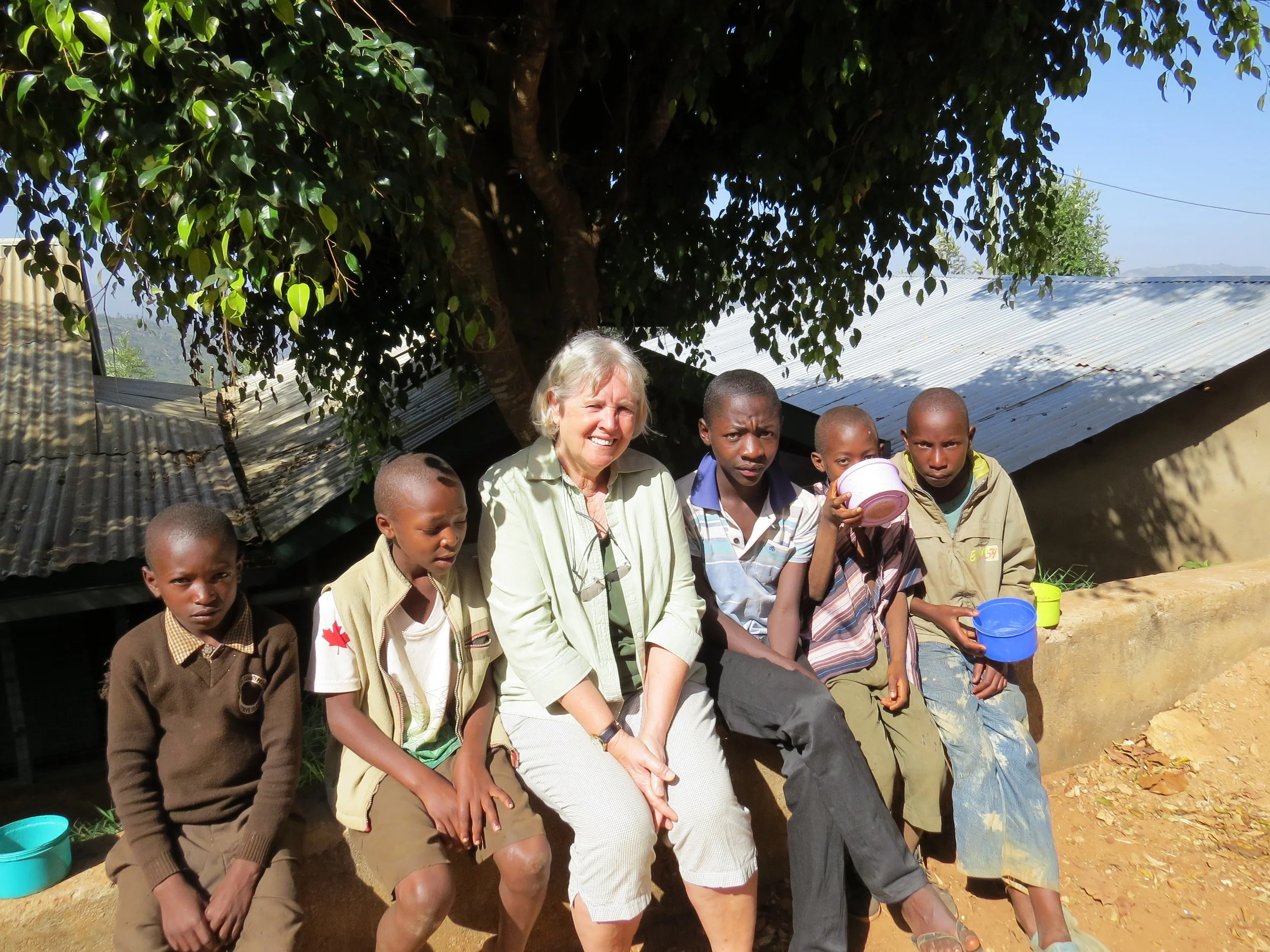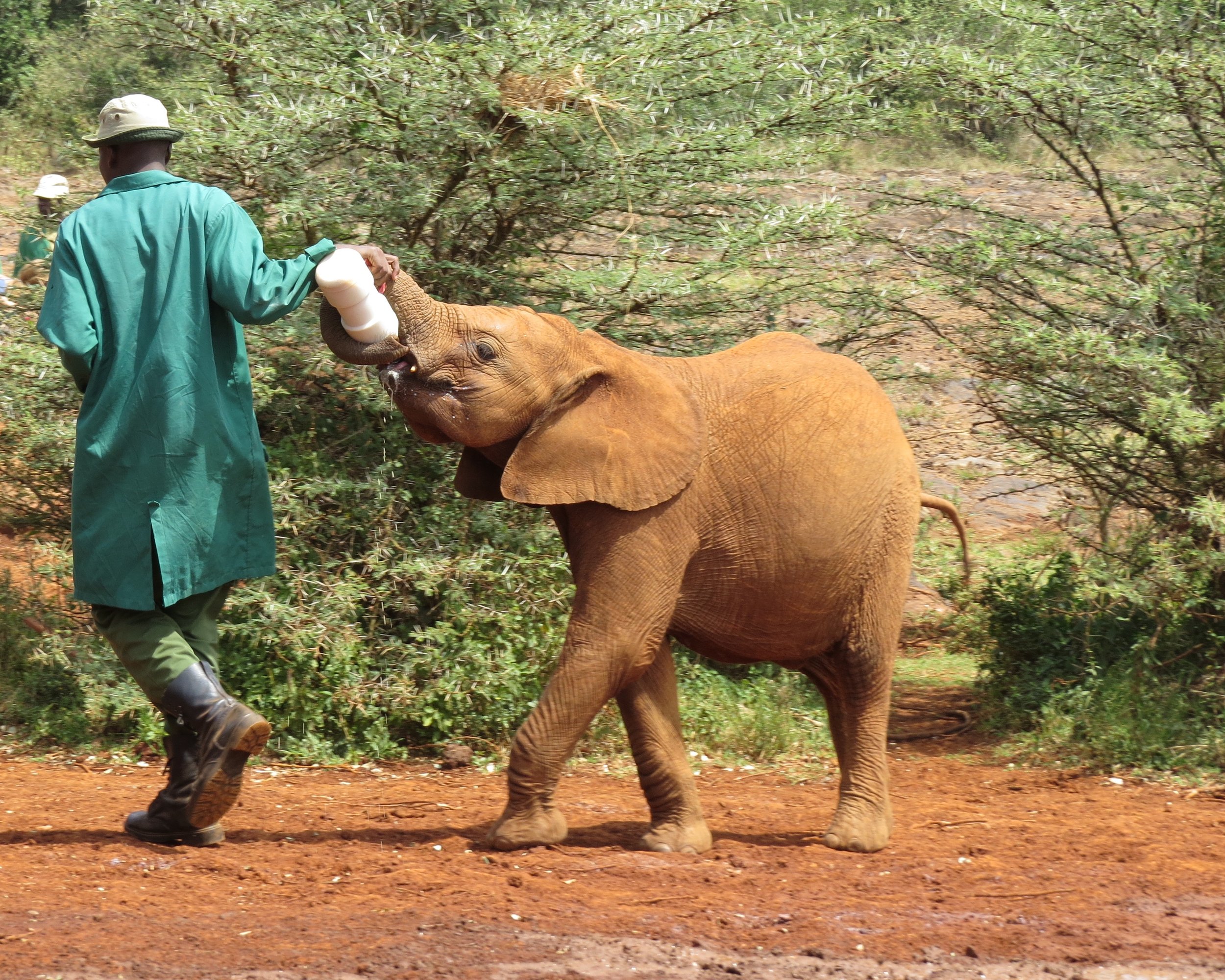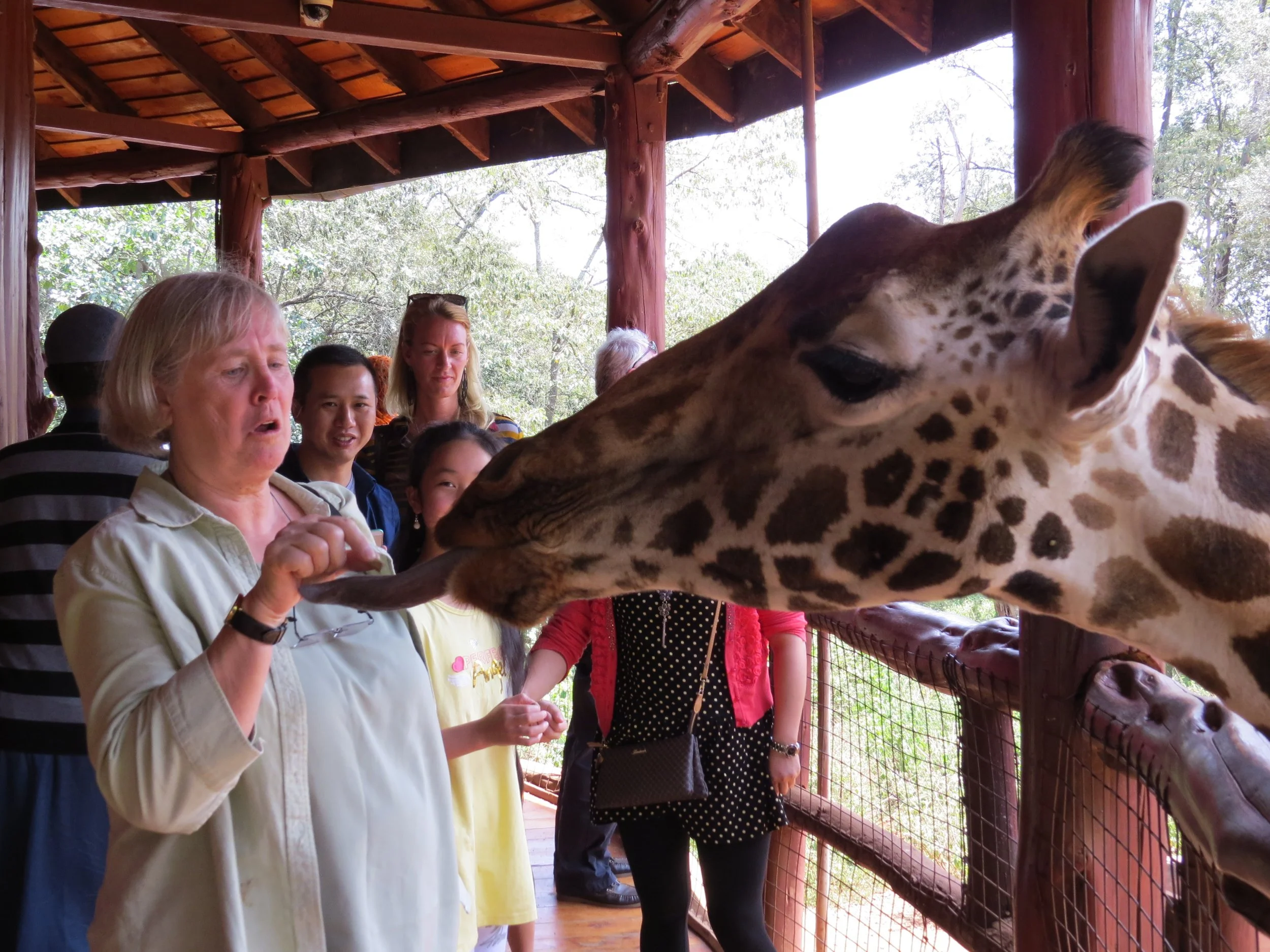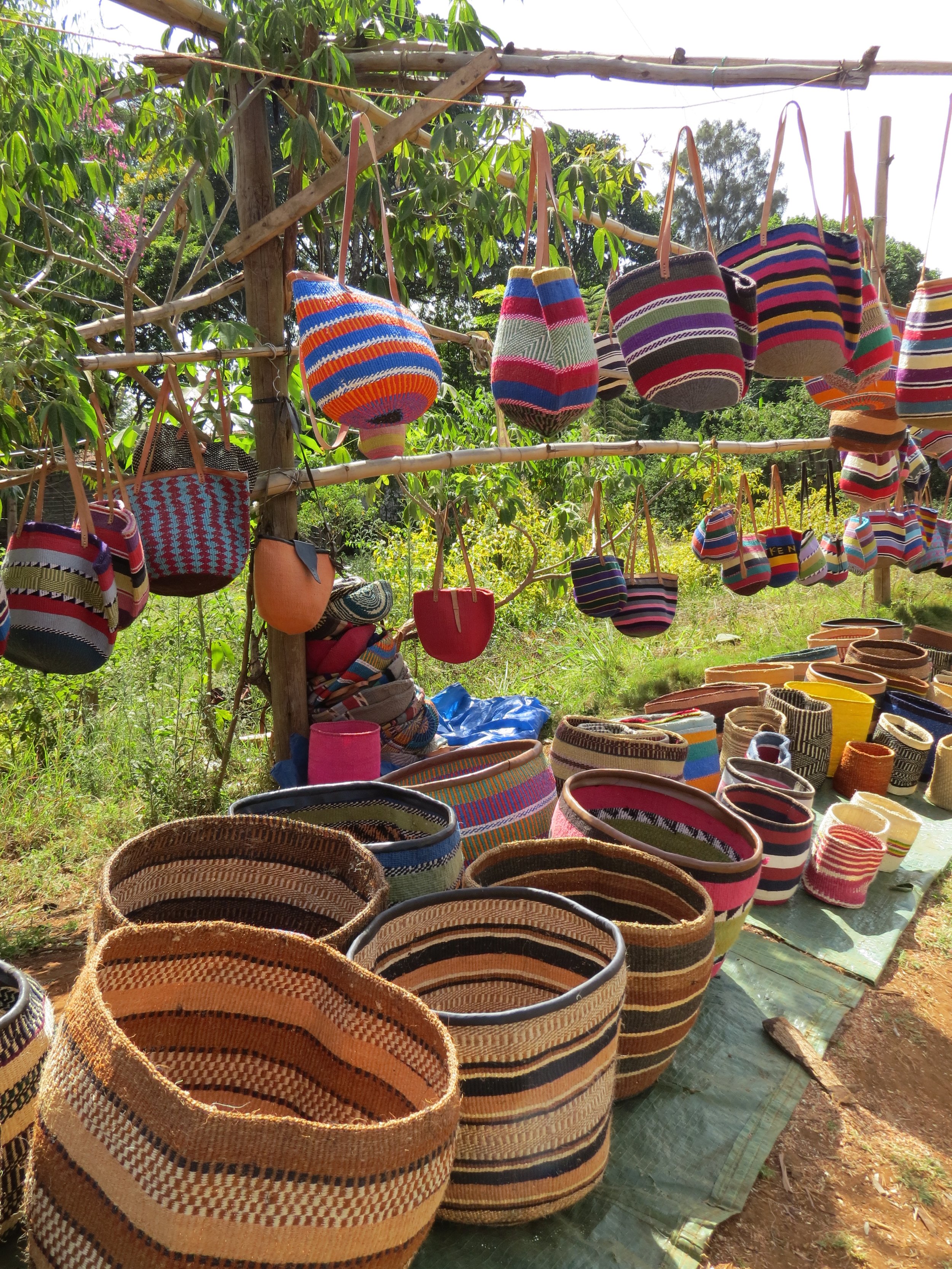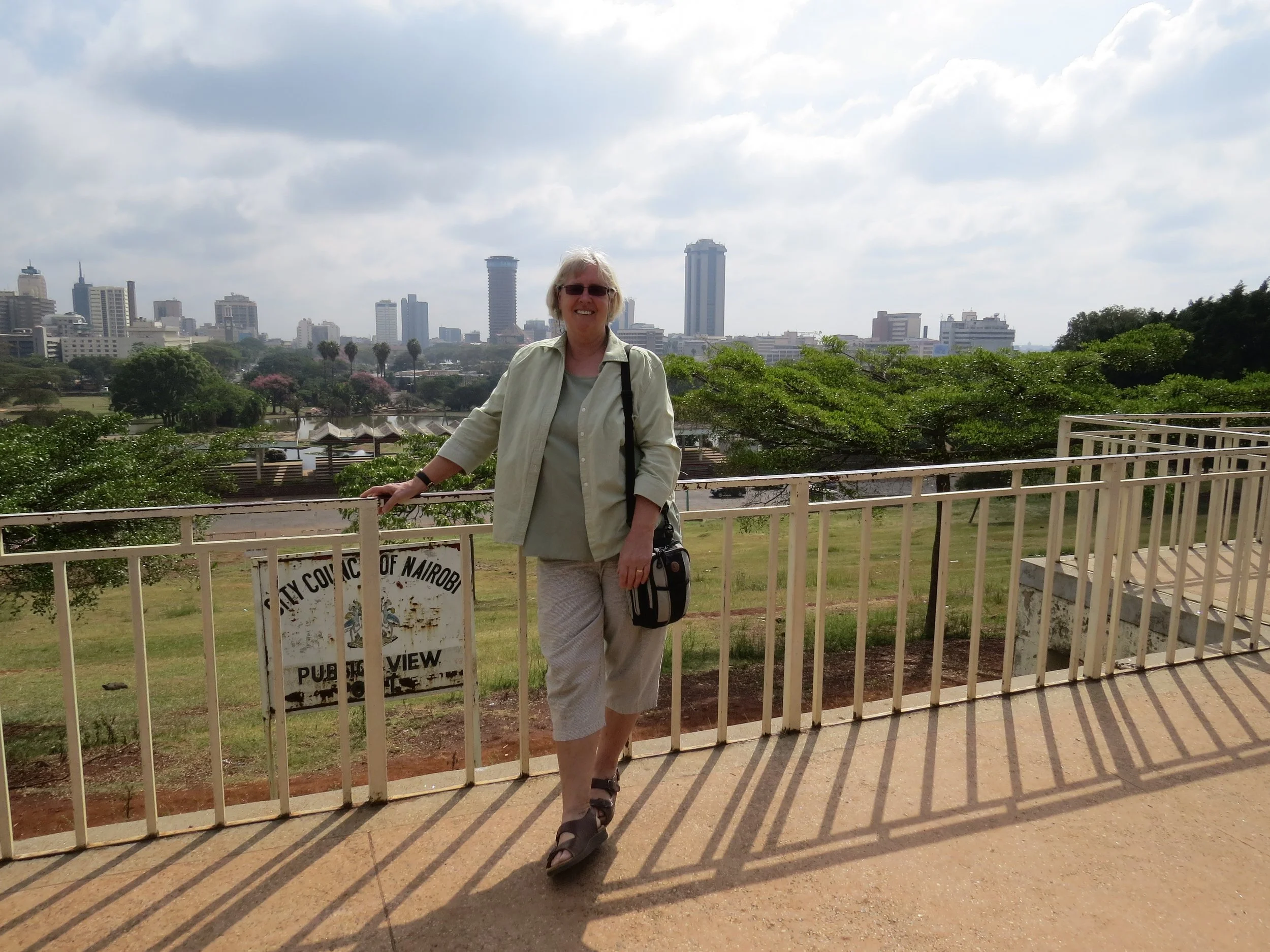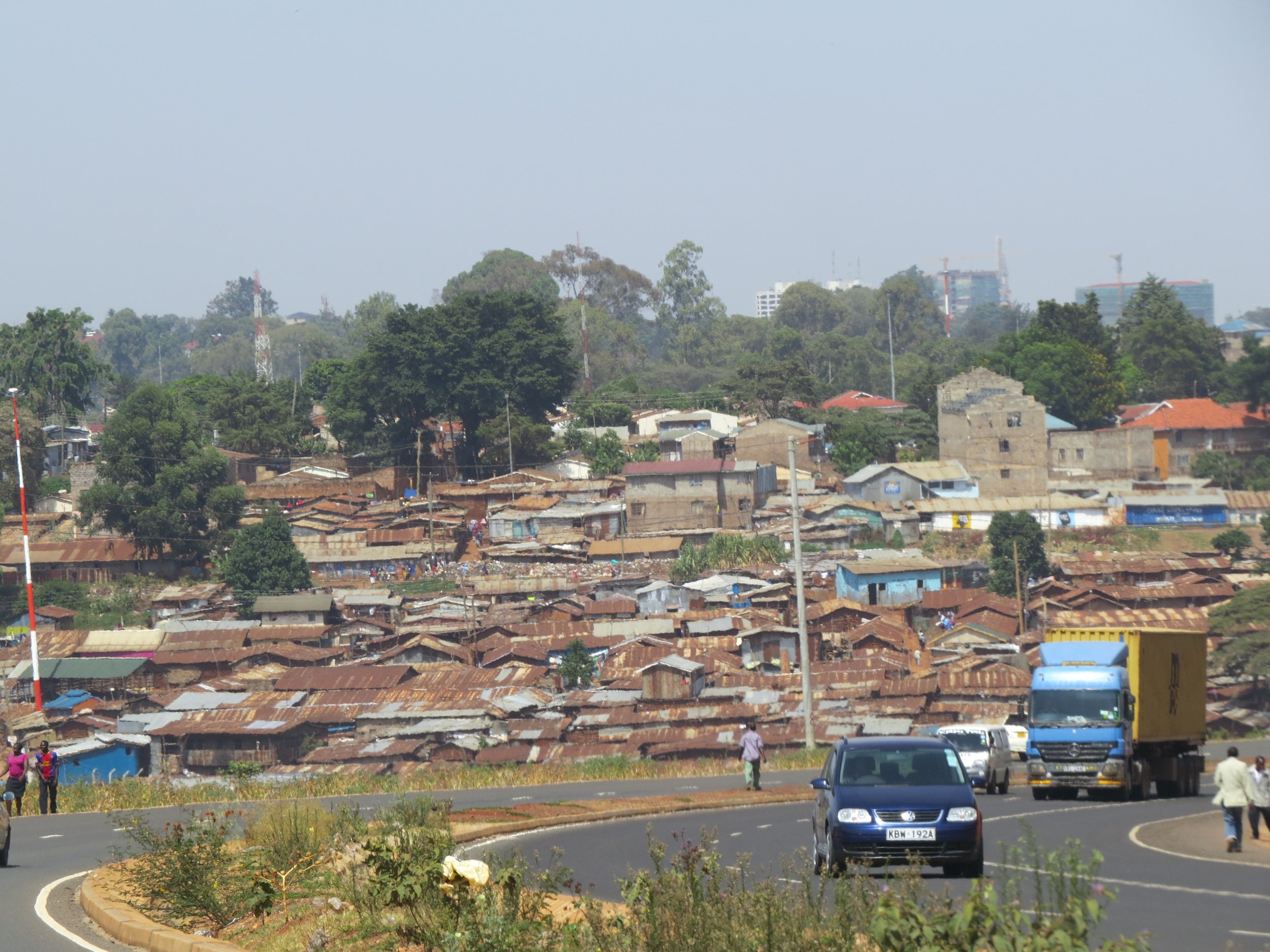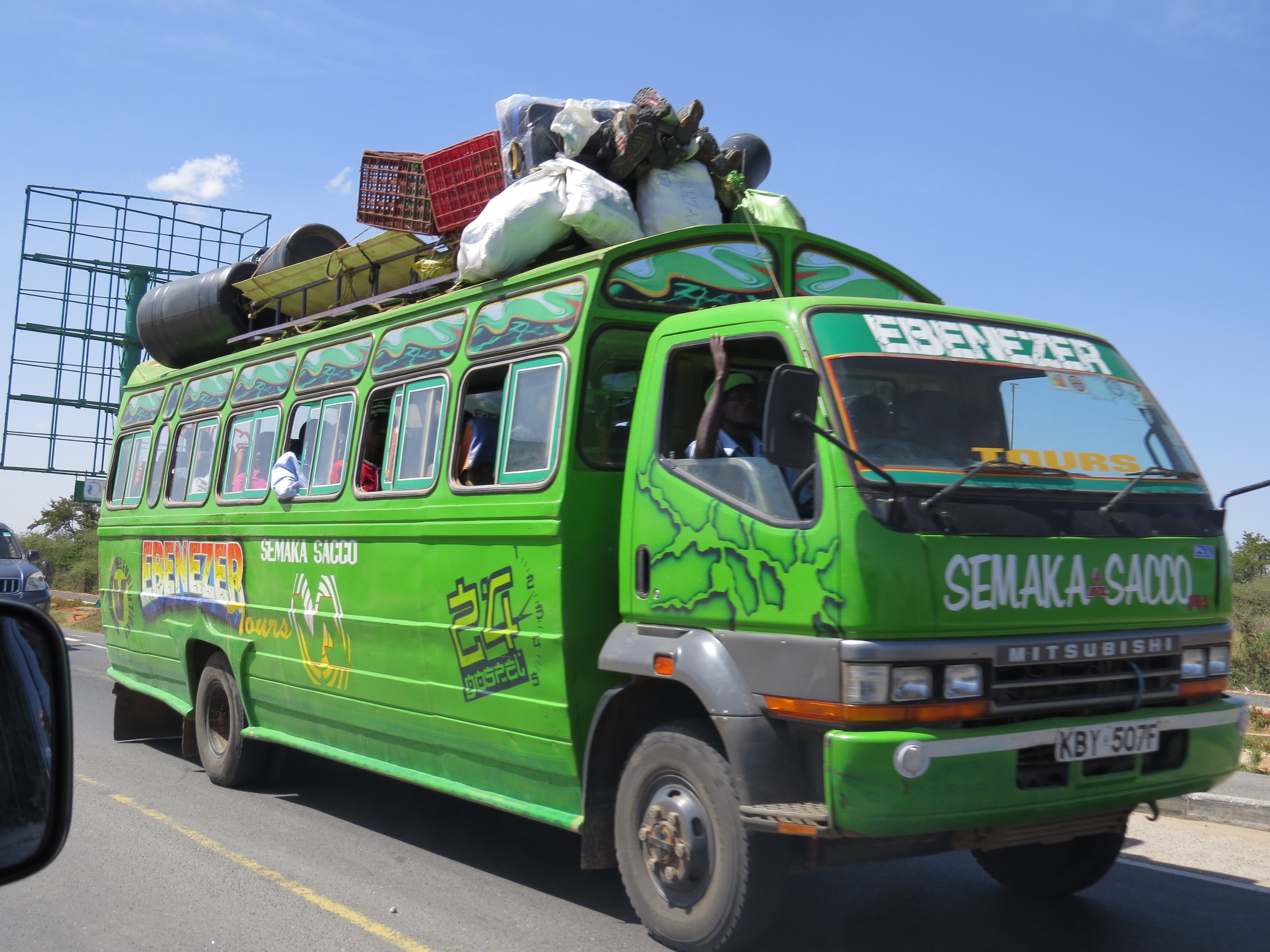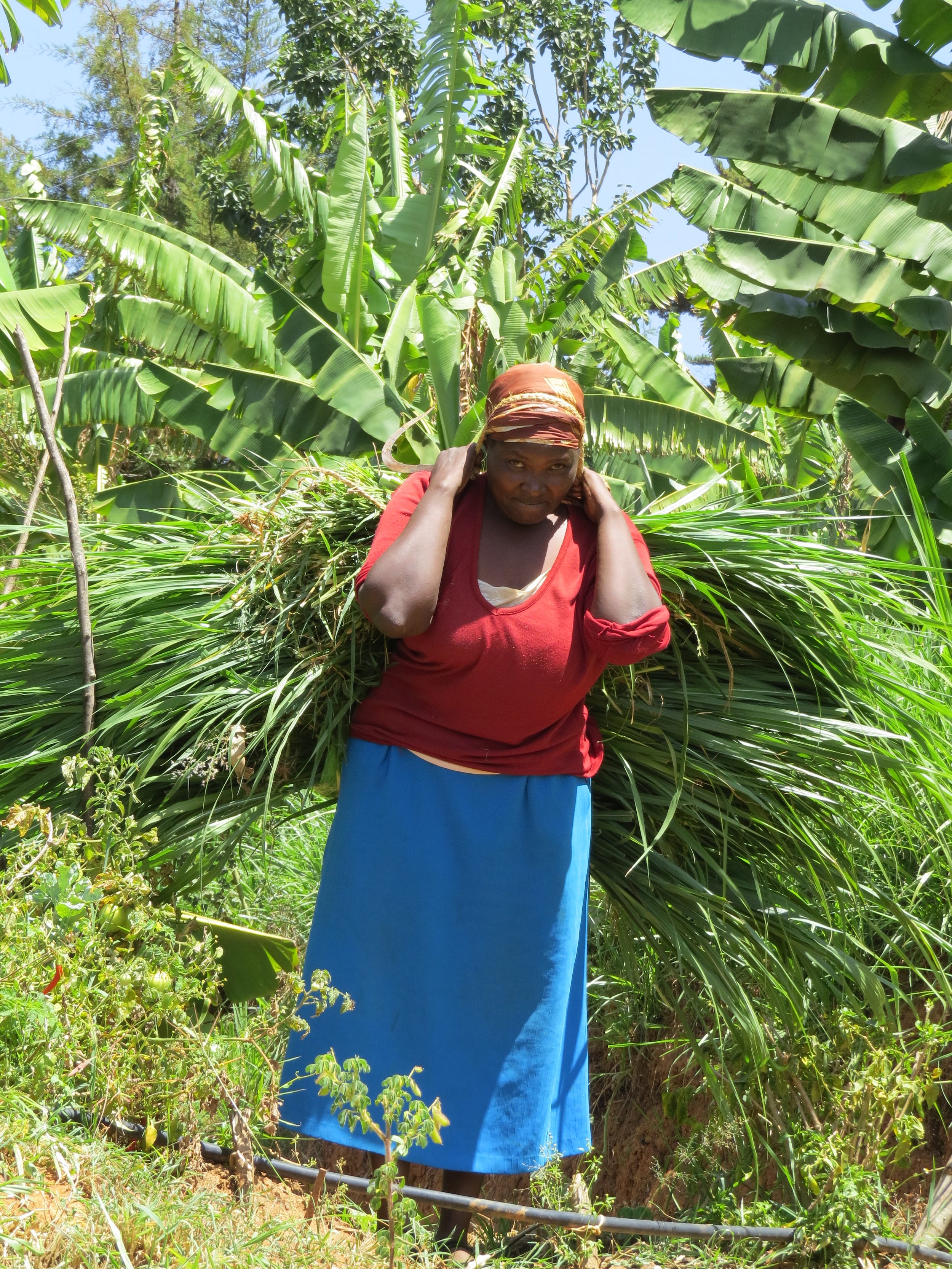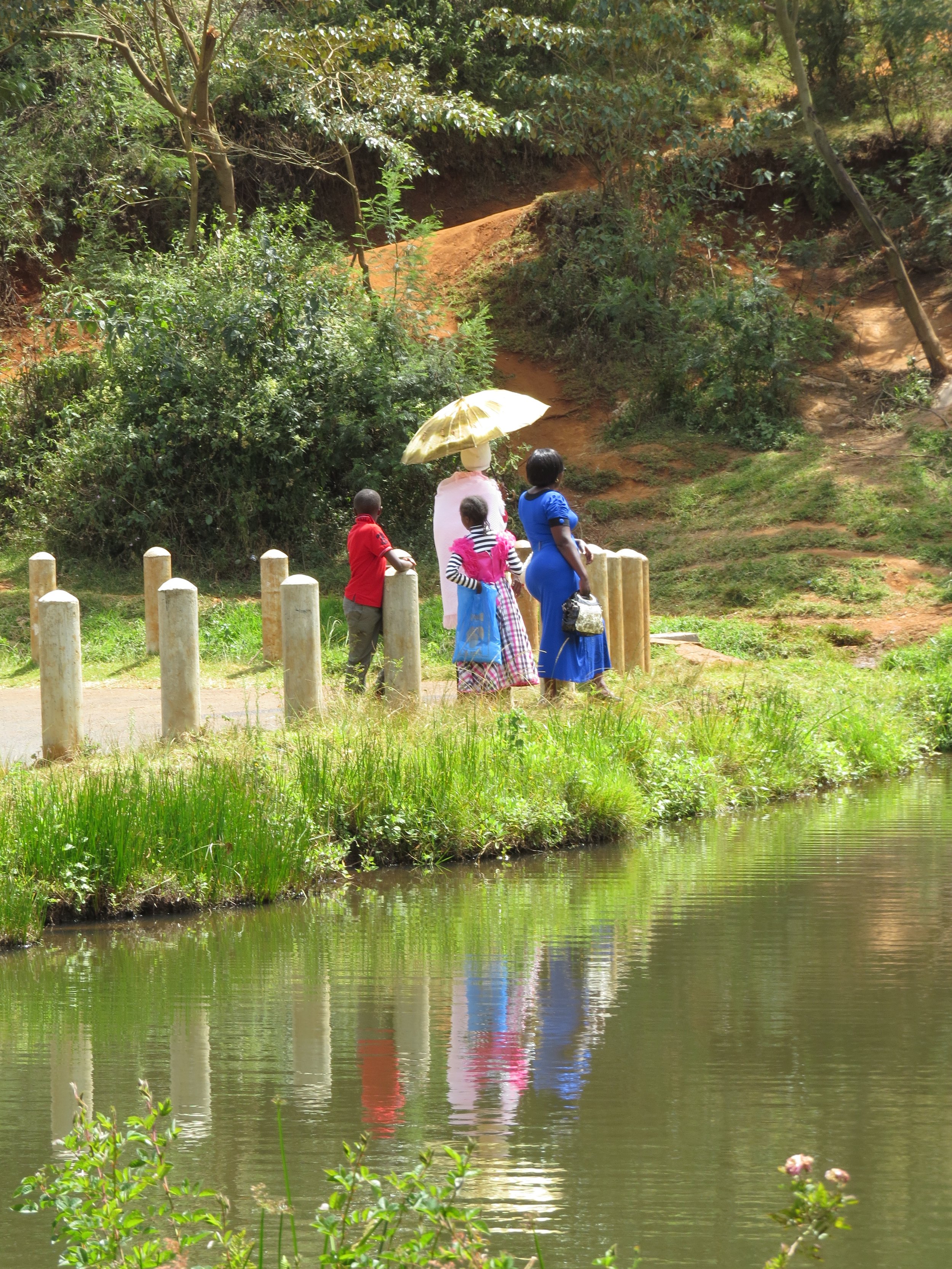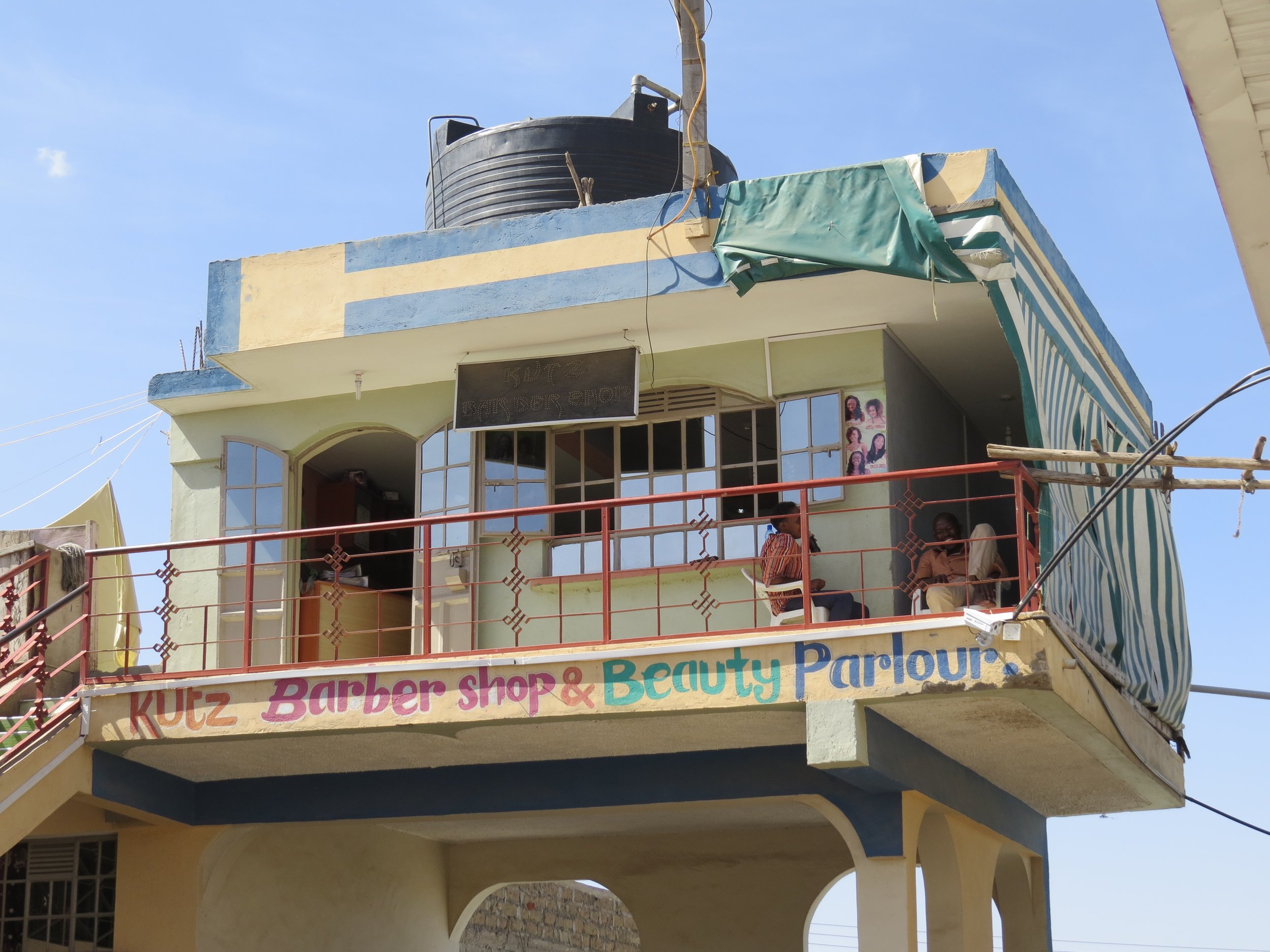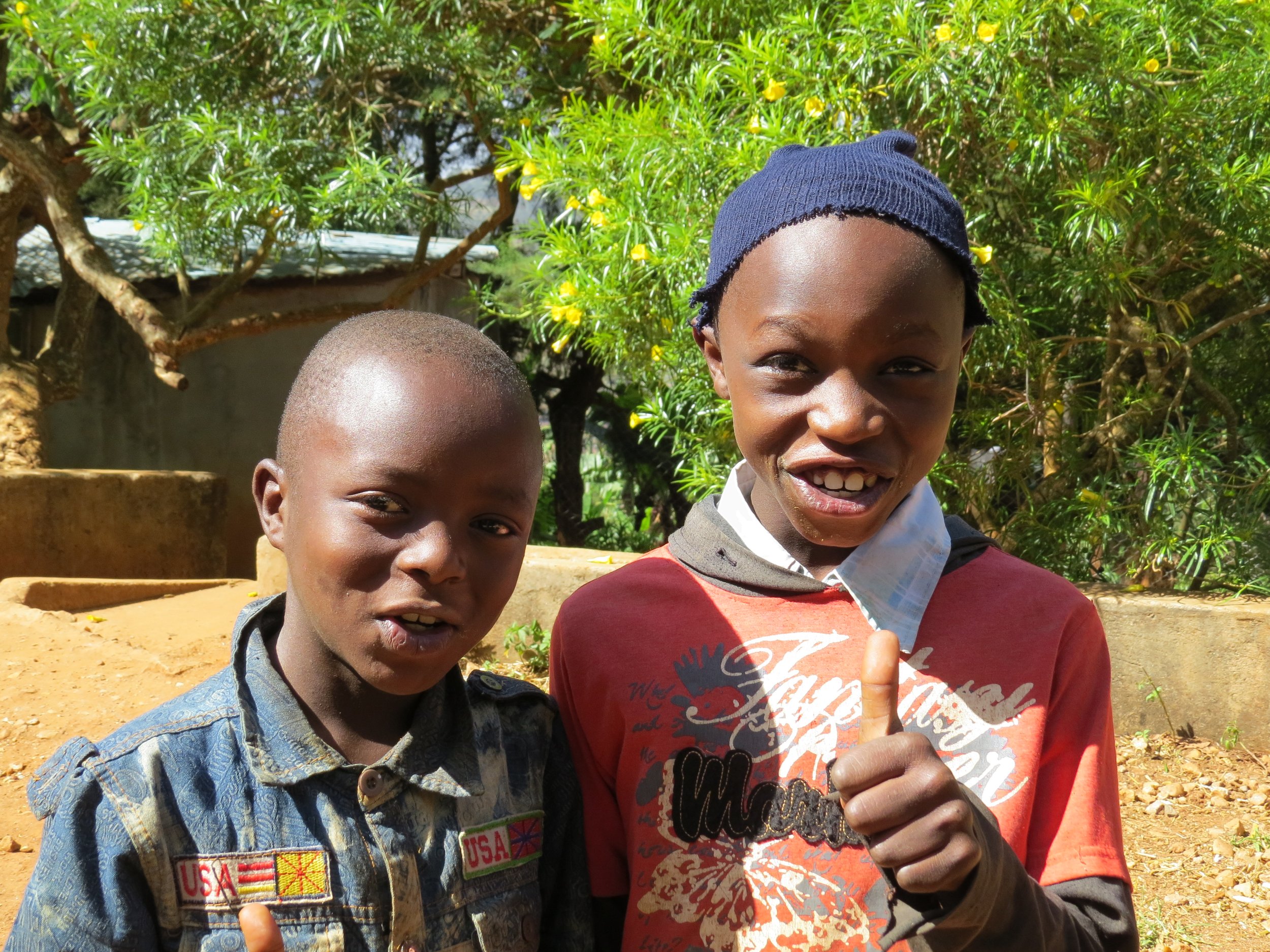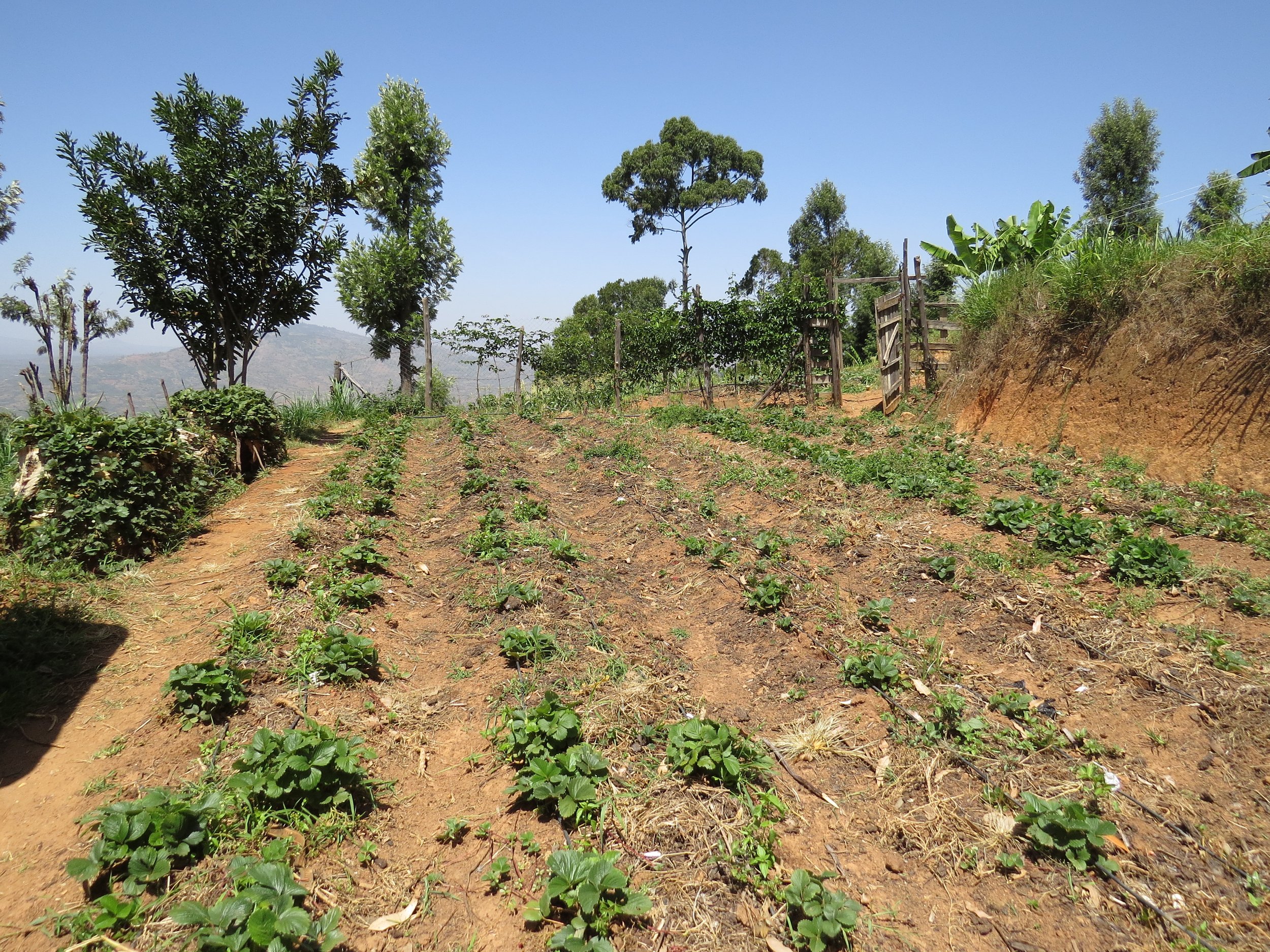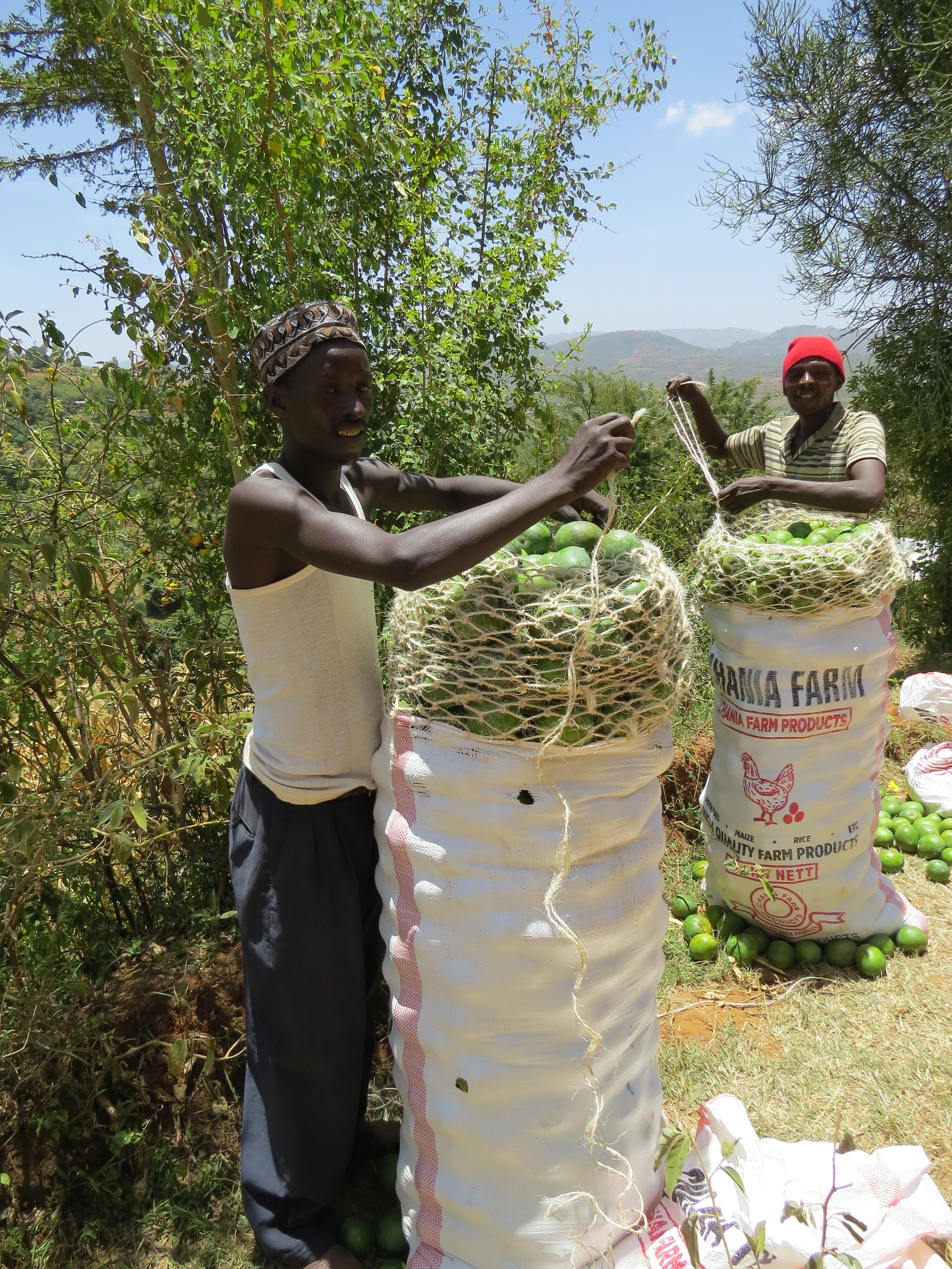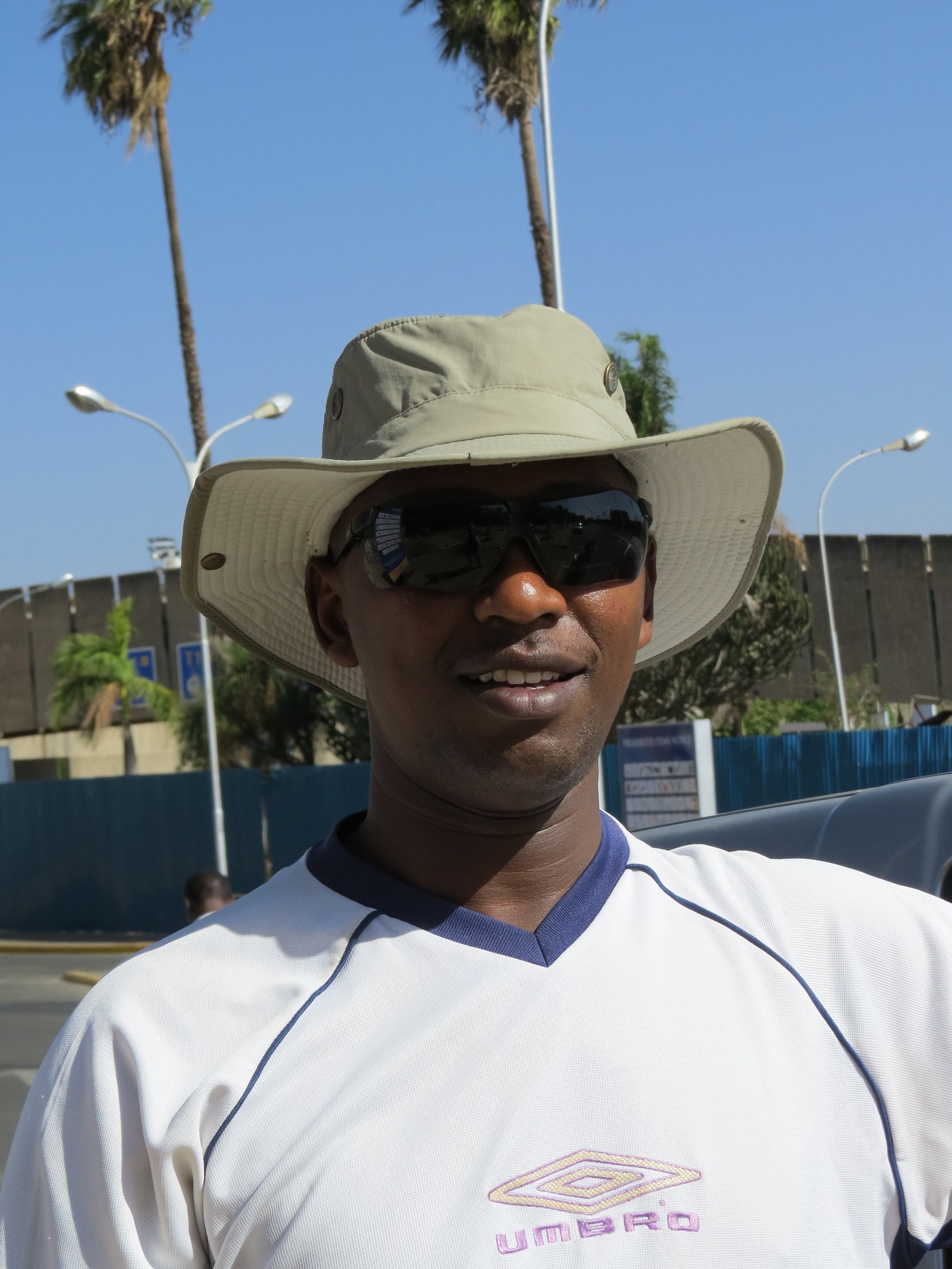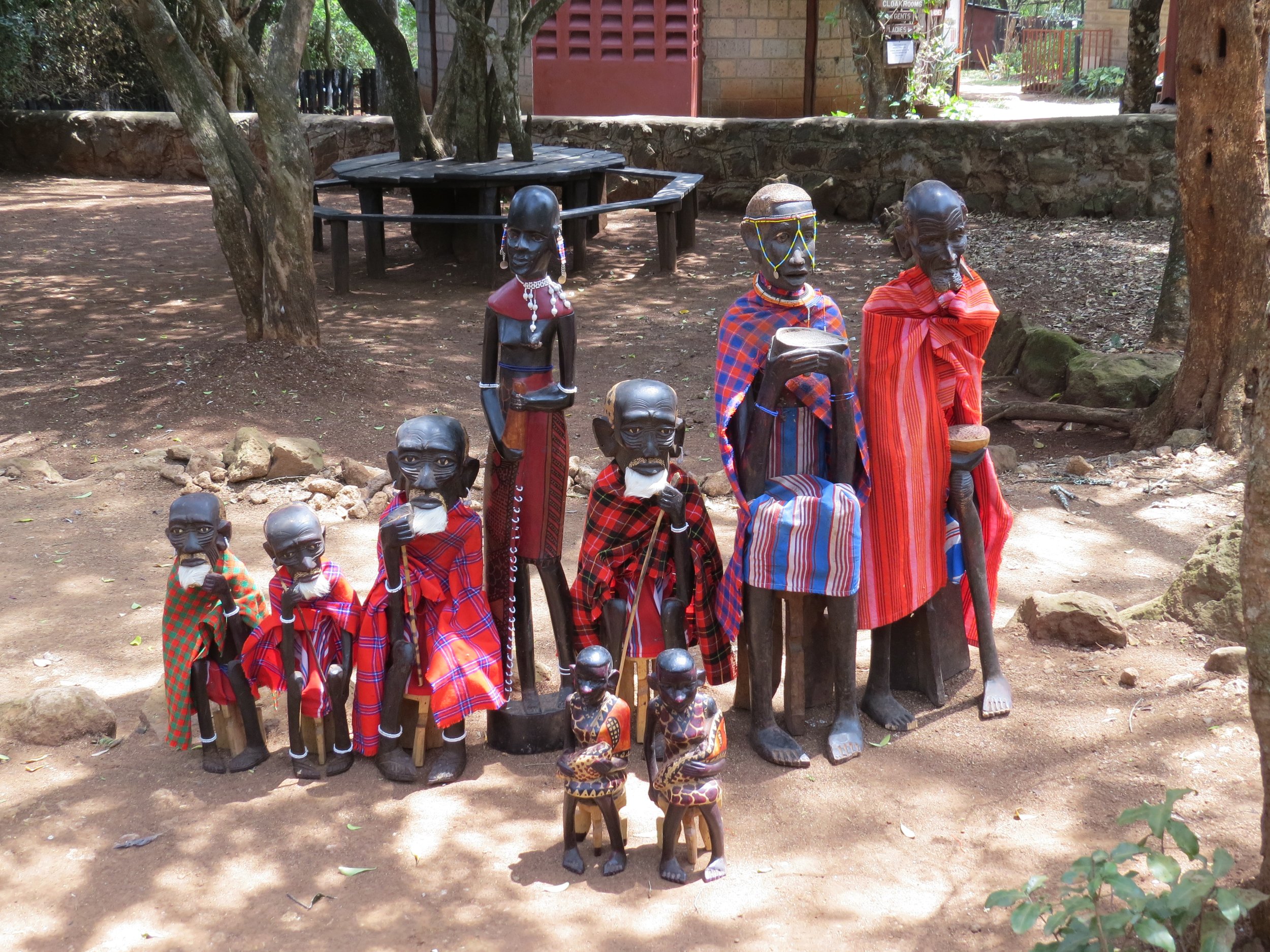Before I went to Nairobi, Kenya I imagined it as flat, yellow, dry and a huge city. In reality it is a big city of over 3 million people but in many areas it is beautifully hilly, lush and green. While working at the international school, I stay in a cute little cottage, among huge palm trees and bright bougainvilleas. Birds twitter and sing in the green leaves. Here, Nairobi did not feel like a capital city.
On my first weekend off I visited elephants at Sheldrick Elephant Orphanage. Similar to the orphanage in Zambia about which I wrote a book called The Elephant Keeper, Sheldrick rescues abandoned elephants but exposes them more to human visitors.
I also visited the Giraffe Center, home of the Rothschild giraffe and run by the African Fund for Endangered Wildlife. It was interesting to stroll around and smooch with a giraffe. I went to some amazing craft places with baskets, weaving, masks, and necklaces. It is hard not to go home with a suitcase full of gorgeous Kenyan art. You can buy huge masks with beadwork, 2 meter tall carved giraffes, tablecloths and blankets of red Maasai and Kente cloth.
All week I got picked up early by a driver who takes me to school and who then sits studying for his next guide exam while I speak to hundreds of kids at the international schools. Kids from England, Japan, Spain, Holland, Canada, and many more countries around the world. There was a lot of excitement about my books, about writing their own stories and books in general. Wonderful librarians stimulate these kids who have a well stocked library at their fingertips.
Nairobi
It’s been warm: 30, 32ºC but often with a nice breeze and it’s a dry heat right now. People are looking forward to the rains, which will rinse off the red dust and bring new flowers. But I’m glad not to have rain while I’m here. We have plenty of that where I come from!
The center of Nairobi is crowded with modern buildings and sidewalks full of people of all races and backgrounds. I’ve never seen traffic like here. Completely clogged roundabouts, 4 lanes of cars tied into a knot. Apparently all traffic lights work but no one looks at them. There’s a policeman at every roundabout directing traffic, regardless of what the lights say. If cars had elbows, that what they’d use here.
But this is Nairobi, too…
But my favourite thing to do is to drive along the streets with tiny little shops leaning against each other. Corrugated tin forms the walls or roofs, rough wood keeps it all together. A rusty sign announces the ‘Meddle Some Beauty Parlor’ or the ‘Banana Hill Hardware Shop’ - which looks like it is in dire need of hardware. Plastic chairs are lined up outside for shopkeepers or customers. A wash basin is used by a barber. Goats, babies, bales of fabric - all is crowded onto the city sidewalks while overloaded buses and motorbikes and cars push past. A woman cuts sugar cane, someone is roasting corn. I love the women with broad smiles, swaying hips and long, brightly coloured skirts. Many have headscarves wound around their hair or carry babies in a cloth on their back. Others carry a basket of carrots or tomatoes in their head. It is a colourful picture book come to life.
I saw some women and children washing clothes in a pond, drying them on the grass. I ate the biggest juiciest mangoes you can imagine and I bought an armload of roses for my hosts: 20 fresh, longstem roses for 2 dollars!
I love the stories I hear from Henry, ‘my’ driver, in Kenya. He told me much about politics, both in small villages, in the capital city and in the country. There seems to be a lot of corruptness, a lot of crime both small and large. But also much kindness. Previous employers of his gave him their car when they returned to Europe.
White employers generally supply a pension for their personnel if they stay with them for more than 15 years. Having a housekeeper you can trust means you can simply go away without having any worries about house, garden and pets. And a local family has a home and income too.
One day, when I got picked up, Henry was in the kitchen ooh-ing and aah-ing over the dishwasher. He had never seen one and was amazed that a machine could wash plates and cutlery. I told him not to tell his wife because it may make husbands redundant…
On Sundays large groups of people walk to church. Children in beautiful, frilly dresses. Men in stiff black suits. One can hear very happy, very loud gospel songs rising from tents and open windows.
‘It takes a village to raise a child’ is a true saying here. Henry told me long stories about Kenyan weddings. Apparently a child does not belong to its parents here, but to the entire village. He said that, not long ago, the price for a bride, was paid in goats. But now it is paid in other goods such as sugar, drinks, maize, etc. He said “You cannot carry these gifts to the elders just in plastic bags. You have to put it in nice baskets.”
The bridal price is paid to some village elders, not necessarily to the parents of the girl. One elder has to give permission for the marriage. He added that you also have to bring cloth for wrap-around shawls for all the women in the village, maybe 200 of them.
Along the main highway I spot women carrying babies, bananas and everything in between. Men hail down matatu’s (busses) and cling to the doors. Goats are narrowly missed by the many cars that swerve to avoid potholes. There is red dust and exhaust fumes in the air. When the traffic slows to a crawl you can buy sugar cane to chew or a newspaper or new sunglasses, from all the vendors who walk past the cars. Well outside the city I spot a forlorn herd of zebra, a sad reminder of days when abundant wildlife still roamed these plains. Now most animals moved to the relative safety of national parks.
Several years ago, Canadian author Eric Walters had a chance meeting with a woman from Kenya. Ruth and her husband, also called Henry, spent some time in Canada but longed to make a difference for people in their home country, Kenya. Eric also longed to make a difference and to connect young people in Canada with those in Africa.
Eric and his wife Anita founded Creation of Hope, a non profit organization to help better the lives of orphans in Kenya. Ruth and Henry offered their land in the high hills of the Mbooni region, outside Nairobi. Miraculously things fell into place: people wanted to help, schools and individuals started sponsoring children. Young boys and girls without any family would have likely ended up as street children without any hope in their future. Now these same children have clean clothes, a bed and a regular meals. They attend school and even have the opportunity of university in their future.
In the hills of Kikima…
Eric works very hard to support the 60 some children in the care of Ruth and her staff. Schools and individuals can help financially. I feel very fortunate to visit the orphanage in the hills outside Naroibi and to meet the children in person. I wrote about one of them in my book Schooldays Around the World but had never met him in person. Now I can drive out there for the weekend.
The orphanage consists of a large multilevel building with dorms for boys and girls, a kitchen, a dining area and bathrooms with running water. The stove uses bio fuel produced from manure from their own cows!
A huge garden provides healthy food like beans, corn, kale, tomatoes, lots of strawberries and mangoes. They bake their own bread and sell cakes to the community.
Eric has written several beautiful books based on his African adventures: Hope Springs and My Name is Blessings are stories of real children in his care. The first one tells the touching tale of how a well was build to provide water and how the children reached out to the broader community to help a nearby village as well.
To write his novel Walking Home, he actually walked across Kenya with a group of orphans. They crossed the second largest slum area in the world: Kibera. They walked hundreds of kilometers, in Kenyan heat, all the way to the hills of Kikima where the orphanage now looks out over the valleys.
Mango harvest!
The children all attend school. Some older girls are in university and everyone beams with pride when they talk about their success. What a privilege to visit the Walters’ success story in Kenya and to meet the very impressive Ruth who quietly moves mountains. And it was special to meet the kids whose happy grins tell the whole story.
But then it is time to leave Kenya. Driver Henry takes me to the airport. His English is very good but he swaps the ‘r’ for an ‘l’ and visa versa. Hence I had to think for a second when he seriously told me that his daughter wants to be a pirate when she grows up.
It took me a while to figure out she wants to be a pilot…
When I ask Henry if he knows someone who might want my old safari hat, he smiles broadly and slaps it on his own head. “Now I am a black mzungu!” he grins. (Mzungu is a white person).
When we get to the airport, there are security guards and gates. He rolls down his window and an armed security guy leans in, shakes hands with Henry, slaps him on the shoulder. They have a laughing conversation in Swahili, then the guy leans across and shakes my hand. When we drive off I ask if this was a friend of Henry’s. “No,” he smiles, “never seen him before. People are just nice here.” I will miss this sun kissed land full of smiles and colour.
If you would like to support Eric Walters’ orphanage, you can make a donation or sponsor a child as an ongoing commitment. My family sponsors a boy the same age of our oldest grandson. We can send letters and exchange emails with him. Hope Story is a Christian organization that oversees the logistics: https://www.hopestory.ca/
• https://www.sheldrickwildlifetrust.org
Art for sale!

